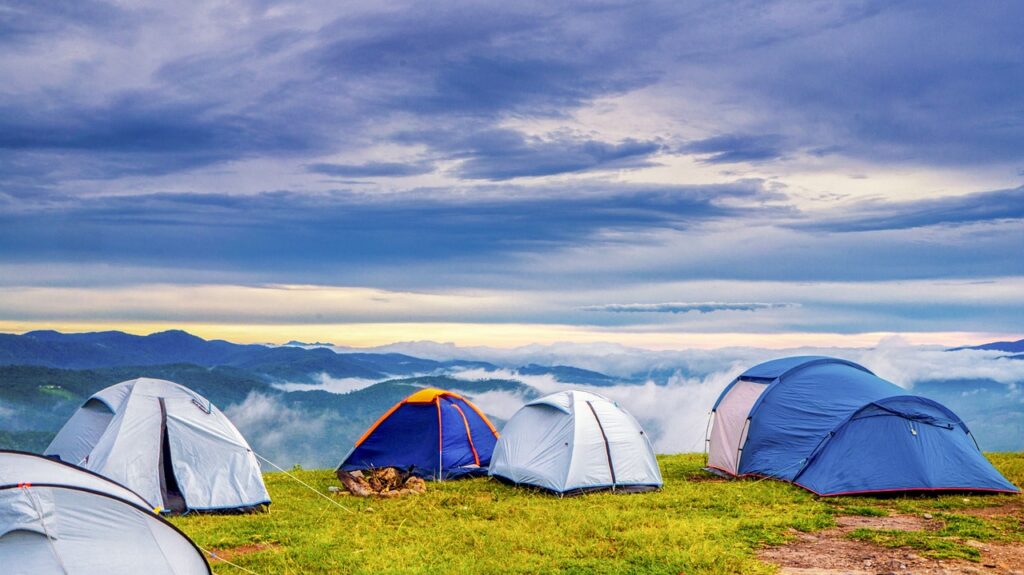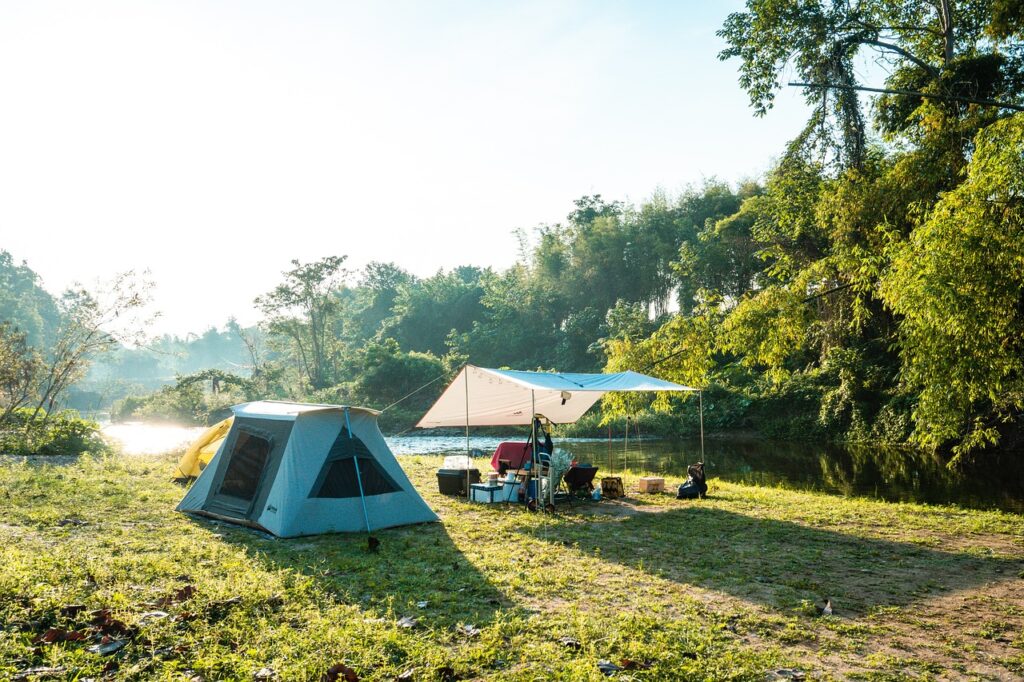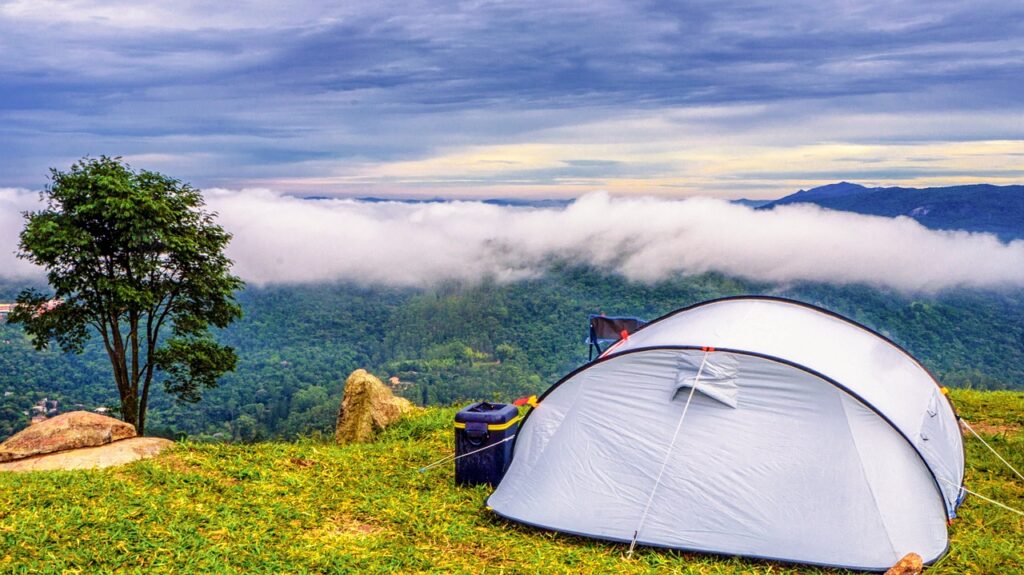Camping is an incredible way to connect with nature, unplug from technology and spend quality time with loved ones. However, in order to truly enjoy and appreciate the beauty of the outdoors, it is important to plan and prepare for your camping trip. In this article, we will discuss some tips and tricks on how to have a fantastic outdoor camping experience.

1. Choose the Right Location
Choosing the right location for camping is crucial. You need to consider factors such as weather, terrain, accessibility, and available amenities. Some campsites offer running water, electricity, and even shower facilities while others are more primitive. Research online or ask for recommendations from friends who are experienced campers to find the best location for your needs.
2. Plan Your Gear
Before you set off on your camping adventure, make sure you have all the necessary equipment and gear. This includes a tent, sleeping bags, cooking utensils, a portable stove, food, and water. Consider the number of people who will be joining you and ensure that everyone has their own sleeping bag and adequate clothing layers. Make a checklist to avoid forgetting any essential items.
3. Set Up Your Campsite
Setting up your campsite correctly will help ensure a comfortable and enjoyable camping experience. Choose a flat surface to pitch your tent and avoid areas with rocks or roots that can damage your tent floor. Ensure that your tent is well ventilated and sturdy enough to withstand any wind gusts. Also, check for any potential hazards such as poisonous plants or wildlife around your site before setting up camp.
4. Prepare Your Food
Eating well while camping is important, but preparing food in the wild can be challenging. Plan your meals ahead of time and bring non-perishable foods that are easy to store and cook. Invest in a good quality portable stove or grill and bring along utensils for cooking and eating. Store your food in airtight containers to protect it from wildlife.
5. Pack Light
When camping, it is essential to pack light. Only bring what you need, avoid overpacking as it can weigh you down on hikes or when setting up camp. Try to pack essentials that serve multiple purposes such as a sleeping bag that can double as a blanket. Consider using backpacks with waist straps to distribute weight more evenly.
6. Enjoy the Outdoors
Outdoor camping is all about enjoying nature and everything it has to offer. Go on hikes, bike rides, or fishing trips with your friends and family. Take time to appreciate the natural beauty around you, observe the wildlife, and stargaze at night. Bring along board games, cards or books to help relax and unwind.
7. Leave No Trace Behind
One of the most important aspects of outdoor camping is leaving no trace behind. Respect nature by cleaning up after yourself and avoid littering. Practice proper waste disposal by separating garbage and recyclables. Avoid disturbing the wildlife and take care not to damage the environment.

Core Elements of Choosing a Safe Campsite
Camping is a wonderful way to enjoy the great outdoors and connect with nature. However, choosing the right campsite is crucial for ensuring a safe and enjoyable experience. It it is recommended to follow the following principles:
1. Avoid Hazardous Areas
When looking for a campsite, avoid areas that are prone to natural hazards such as flash floods, landslides, or avalanches. Also, stay away from areas with high wildfire risk or those located near cliffs or steep drop-offs. Research your potential campsite location ahead of time to check for any potential hazards.
2. Consider the Terrain
The terrain of a campsite is also an important factor to consider when ensuring safety. Choose a flat area that is free from rocks, roots and other obstacles that can cause accidents or damage your tent. Additionally, make sure your campsite is not located in an area prone to flooding or standing water, which can attract mosquitos and other insects.
3. Check for Nearby Wildlife
Camping in areas with wildlife can add to the excitement of the outdoor experience, but it is important to take precautions to ensure your safety. Research the types of animals that live in the area where you plan to camp and take appropriate measures to protect yourself and your belongings. Store food securely to avoid attracting bears, wolves or other large predators and keep a distance from any wild animals you encounter.
4. Look for Available Amenities
Some campsites offer amenities such as running water, toilets, and fire pits. These amenities can contribute to a more comfortable camping experience, making it easier for you to focus on enjoying nature. Choose a campsite with amenities that fit your needs while still prioritizing safety.
5. Check Local Regulations
Before choosing a campsite, make sure to check local regulations and restrictions. Some areas may require permits or prohibit camping in certain locations due to environmental concerns or safety risks. Be sure to follow all regulations and respect any limitations on camping activities.
6. Research Your Campsite
Research your potential campsite location ahead of time to get a sense of the area and any potential dangers. Look for reviews from other campers to see what they liked and didn’t like about the site. Learn about any wildlife, natural hazards, or weather conditions that may affect your trip. The more informed you are, the safer and more enjoyable your camping experience will be.

In conclusion, an amazing outdoor camping experience requires careful planning and preparation. Choosing the right location, gear, and food, setting up camp correctly, packing light, enjoying the outdoors, and leaving no trace are all important considerations. Following these tips will help you have a memorable camping trip and connect with nature on a deeper level . When choosing a campsite for your outdoor adventure, prioritize safety first. Avoid hazardous areas, consider the terrain, check for nearby wildlife, look for available amenities ,check local regulations and research your campsite. By following these core elements of choosing a safe campsite, you can enjoy a memorable and safe camping experience.

